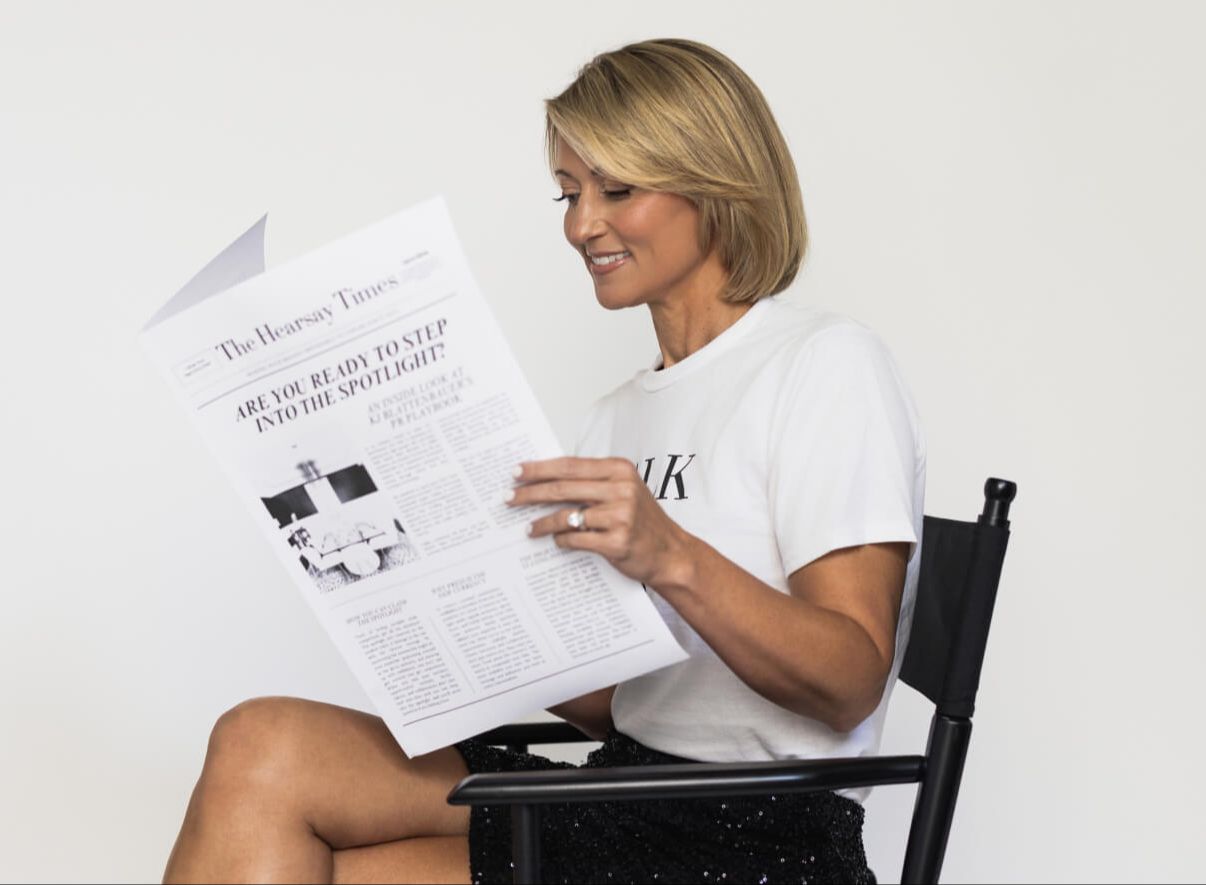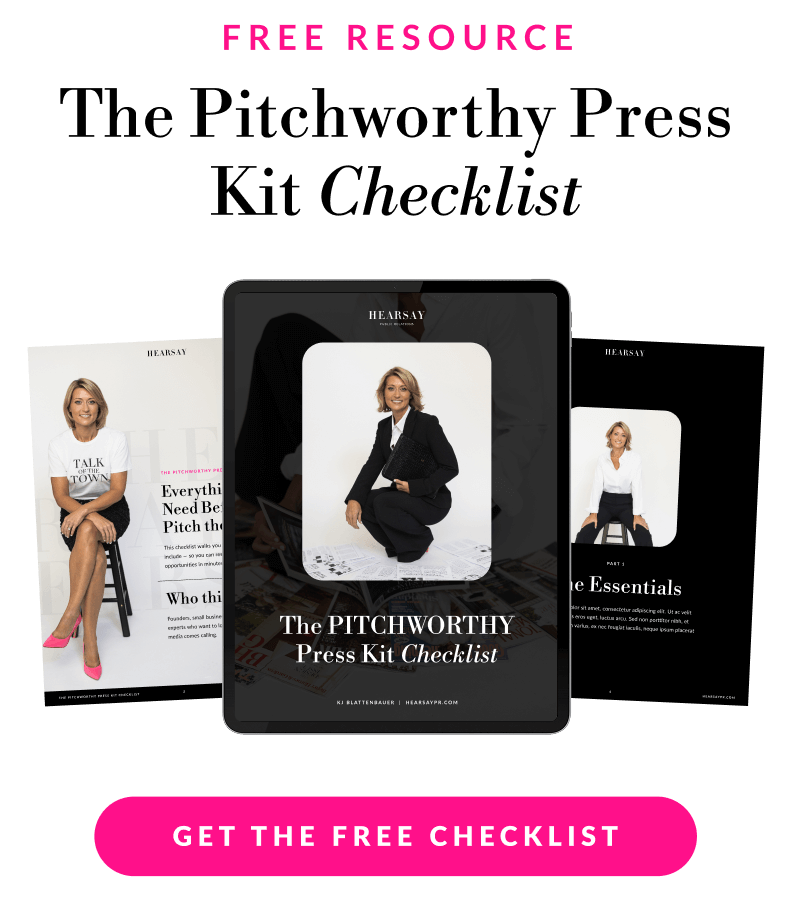Why Visibility Isn’t Vanity — It’s Leadership in Action

I used to believe my results would speak for themselves.
Early in my career, I worked behind the scenes at an international public relations agency—engineering media wins for clients whose names appeared across magazine covers and morning show segments. I was the invisible architect, the strategist making sure the right people said the right things at the right time.
But one afternoon, sitting in the back row of a ballroom while a client accepted an award I’d helped her win, I felt the weight of something unsettling: my work was visible, but I wasn’t.
She gave a beautiful acceptance speech—gracious, composed, confident—and the audience applauded wildly. I was proud of her. But I also realized the difference between us wasn’t talent or drive. It was visibility.
That was the moment it clicked: if I wanted my work to make a lasting impact, it had to be seen. And if I wanted to help other women claim authority in their industries, I couldn’t keep playing small behind the scenes.
Why Women Still Hesitate to Be Seen
For decades, women have been encouraged to work hard, stay humble, and wait for recognition. We’ve been told that “good work speaks for itself,” as if humility and invisibility were the same thing.
But the world doesn’t reward what it doesn’t recognize.
I’ve met countless brilliant founders, executives, and creators who’ve built extraordinary careers—yet still hesitate to own their expertise publicly. They worry that promoting themselves looks vain or that visibility invites judgment. So they keep their heads down and let others take the mic.
The result? Their impact plateaus. Opportunities pass by. The world remains unaware of the brilliance sitting quietly in the corner office, waiting for an invitation that will never come. Visibility isn’t vanity. It’s leadership.
Visibility Is Service, Not Self-Promotion
Being seen isn’t about ego—it’s about access. When you share your story, your expertise, or your journey, you’re not just amplifying your own voice; you’re creating a pathway for others.
Visibility creates representation. It says, This is what leadership can look like. This is who belongs here.
Every time a woman steps into visibility with confidence, she chips away at the cultural conditioning that tells us to be quieter, smaller, or more likable to lead.
As I tell my clients: visibility is stewardship. It’s how we ensure our work reaches the people it’s meant to help.
The Data Behind the Disconnect
If you need proof this isn’t just a feeling, the research is clear.
A Harvard Business Review study found that women rate their own performance 33% lower than equally performing men (Exley & Kessler, 2019). And according to the International Women’s Media Foundation, male experts are quoted twice as often as female ones in news stories across every industry (IWMF, 2020).
This isn’t about talent. It’s about visibility.
We’ve been socially conditioned to associate modesty with virtue and visibility with arrogance. But here’s the truth: the men we see leading with confidence aren’t always more qualified—they’re simply more visible.
Visibility doesn’t create expertise. It reveals it.
How to Systemize Your Visibility (Without Selling Your Soul)
The good news: visibility doesn’t have to feel like a full-time performance. You don’t need to dance for algorithms or chase virality. You just need a system.
I call mine The Pitchworthy Framework, built on three pillars:
1. Clarity
You can’t be recognized for what you can’t articulate. Clarity means knowing exactly what you want to be known for: the expertise, the perspective, and the impact that set you apart. If your message is muddled, your audience can’t connect.
Ask yourself: If someone introduced me on a podcast tomorrow, what would I want them to say?
2. Consistency
Visibility compounds. One thoughtful article, one podcast interview, one well-timed post—each becomes a breadcrumb leading people back to your brand.
Consistency isn’t about volume; it’s about rhythm. One strategic appearance or piece of content per month can shift your reputation more than twelve scattered efforts.
3. Credibility
True authority is earned when exposure matches expertise. Don’t chase every spotlight—choose platforms that align with your goals and audience.
The right visibility elevates your credibility. The wrong kind can dilute it.
The Emotional Work of Being Seen
Visibility is as much inner work as it is outer action. Before you can confidently claim space publicly, you must rewire the beliefs holding you back privately.
That means addressing the fear of rejection, the imposter syndrome, and the belief that “good girls don’t self-promote.”
Here’s the reframe: visibility isn’t self-promotion—it’s story stewardship. It’s taking ownership of your narrative before someone else defines it.
And yes, visibility sometimes comes with criticism. But it also comes with opportunity, community, and momentum. You can’t grow influence without a little friction.
From Behind-the-Scenes to Center Stage
When I stopped hiding behind brand names and started sharing my own perspective, doors opened I didn’t even know existed—keynote stages, book deals, national press.
The irony? I’d been helping others achieve those things for years. I just hadn’t given myself permission to do the same.
Now I teach women how to move from “best-kept secret” to “go-to expert” without burning out or losing themselves in the process.
Because the truth is, visibility done right doesn’t drain you. It multiplies you.
The Collective Shift
This isn’t just a personal evolution—it’s a collective one. When one woman steps into visibility, she creates space for others to do the same.
Representation builds momentum. The more women we see leading publicly, the easier it becomes for the next generation to imagine themselves there.
That’s the ripple effect of visibility.
The next era of leadership won’t belong to the loudest voices. It will belong to the most intentional—the women brave enough to be seen with clarity, consistency, and credibility.
Because the world can’t recognize what it can’t see.
So go ahead—share your story. Take the stage. Send the pitch. You’re not being “too much.” You’re leading by example.





